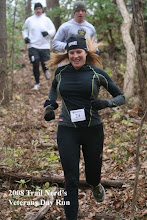I'm trying to make good use of my unemployment time. Before the holidays I was out for drinks with some artist friends, a politician and his wife. Everyone was excited for 2009, and a new era. The wife works for KACEE which promotes good environmental practices in schools. I told her about a school in Topeka I'd reported on, and found out she didn't know who was behind their impressive recycling program. So today, I nominated the woman behind the scenes who had a mission that has been making the world a much better place for over ten years. Here is what I wrote:
As a journalist I’ve attended many award ceremonies and reported on “important and impressive,” people. Doctors, Lawyers, professors and politicians. But in 11 years of reporting, there’s a woman who with a job most wouldn’t consider a profession, and a salary none would envy, has managed to shoulder an environmental movement that would make anyone proud.
In May of 2008 I was working as an anchor and reporter at KTKA in Topeka. The station had awarded the Washburn Rural High school for their “going green” practices. I was sent to do the story. Once I got there I found out it wasn’t their first award. For over ten years, the school recycles everything. Boxes, plastic, cans and paper. In fact, I think their recycling may outweigh their trash. I was escorted around the school by a teacher who had implemented the program. That was only part of the story. The rest was that the program was started by a cook. Her name is Mary Zaitz and I’d like to nominate her for the Strickler award.
Mary started working as a cook in March of 1986.
“I used to just bring the stuff home to recycle it, because the school wouldn’t let me recycle. Then I found out the city wouldn’t recycle the plastic jugs. It just killed me to throw away all those plastic jugs.”
Mary continued her personal mission to recycle at the school but the principal wouldn’t let them set up a system for fear of attracting vermin or creating other health hazards. The school nutritionist tried to approach the principal with Mary’s vision, but again the idea was struck down. Eventually another school teacher came up with a system the principal accepted. In the past, when the stories air about the school’s magnificent program, we hear about this man and not the woman behind the idea. While this bothers me a lot, it doesn’t bother Mary, she’s too busy checking up on the kids.
“Oh I’ve seen her catch the kids putting their plastic bottles in the trash, and she’ll fish them out.” I was talking to Mary’s boss Donna Bateman and getting some more insight into Mary’s mission. Later I asked Mary why this is so important to her.
“I just can’t stand to think of wasting anything. I think about how what we recycle could be turned into a bench or carpet. One day I was watching TV and saw the barges of trash from New York and it just made me sad. I’m glad we are putting out less trash into the landfill.”
In over ten years, it is tons of recycling.
Mary Zaitz doesn’t need a degree to do her job. She doesn’t wear pinstripes to work or sit in a corner office. She wears a hairnet. But she does need passion and determination to actualize her mission for the environment. You can’t learn that in school and it’s not something you can buy in a bottle. But if it was, I assure you, she’d recycle it.
Barefootin' It
15 years ago


